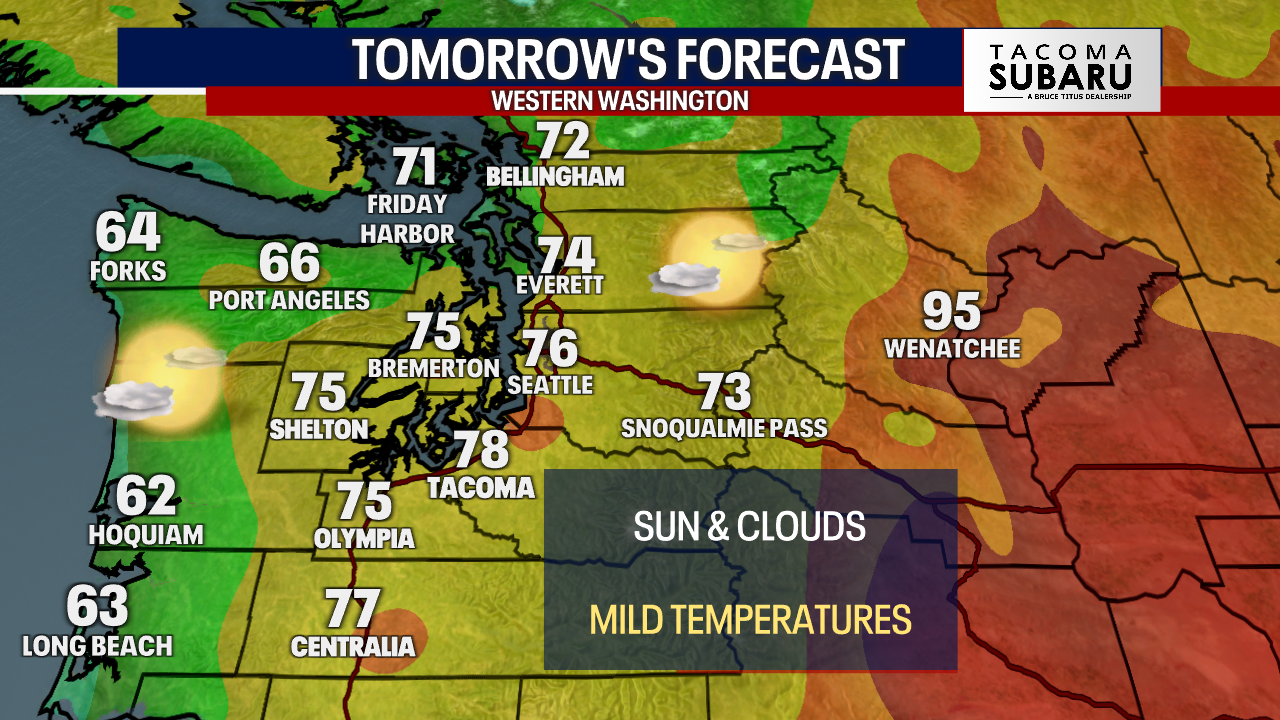The massive budget bill signed into law by President Donald Trump on Independence Day didn’t include everything on Big Tech’s wishlist, but the industry’s largest players stand to gain significantly from several provisions in the One Big Beautiful Bill Act.
Technology
What your car knows about you and could be telling the world
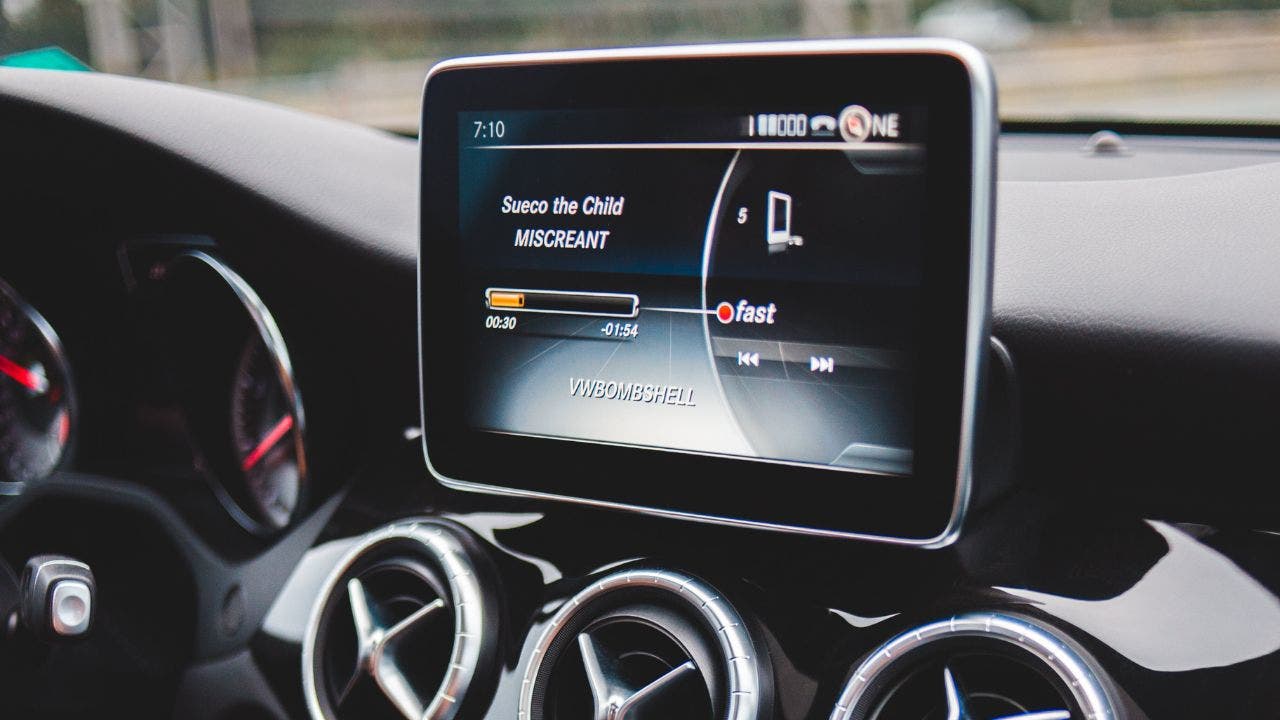
You probably know that your smartphone and laptop store a lot of your personal data, such as your photos, messages, passwords and browsing history. But did you know that your car does the same thing?
Your car can collect and share a lot of information about you, such as where you go, what you say and how you feel. According to Mozilla research, most cars sold in the U.S. today are “privacy nightmares on wheels” that collect huge amounts of personal information.
This data is gathered by sensors, microphones, cameras and the phones and devices you connect to your car, as well as by car apps, company websites, dealerships and vehicle telematics. And if you don’t wipe your car’s data before selling or trading it in, you could be putting your privacy and security at risk.
CLICK HERE TO GET MY FREE CYBERGUY REPORT NEWSLETTER WITH SECURITY ALERTS AND THE LATEST BLACK FRIDAY DEALS
Your vehicle collects and shares a lot of information about you. (Kurt “CyberGuy” Knutsson )
MORE: HOW TO HELP PREVENT YOUR CAR FROM GETTING STOLEN
What kind of data is your car collecting?
The amount and type of data your car collects depends on the make, model and features of your vehicle. Some of the common data points include:
- Vehicle identification number (VIN)
- Mileage, speed, fuel level and oil life
- Tire pressure, engine temperature and battery status
- Brake, steering and acceleration patterns
- GPS location, destination and route
- Voice commands, phone calls and text messages
- Media preferences, playlists and contacts
- Biometric data, such as heart rate, blood pressure and stress level
Some of this data is essential for your car’s proper functioning; some is useful for enhancing your driving experience; and some is sensitive and personal, such as biometric data, phone calls and text messages.
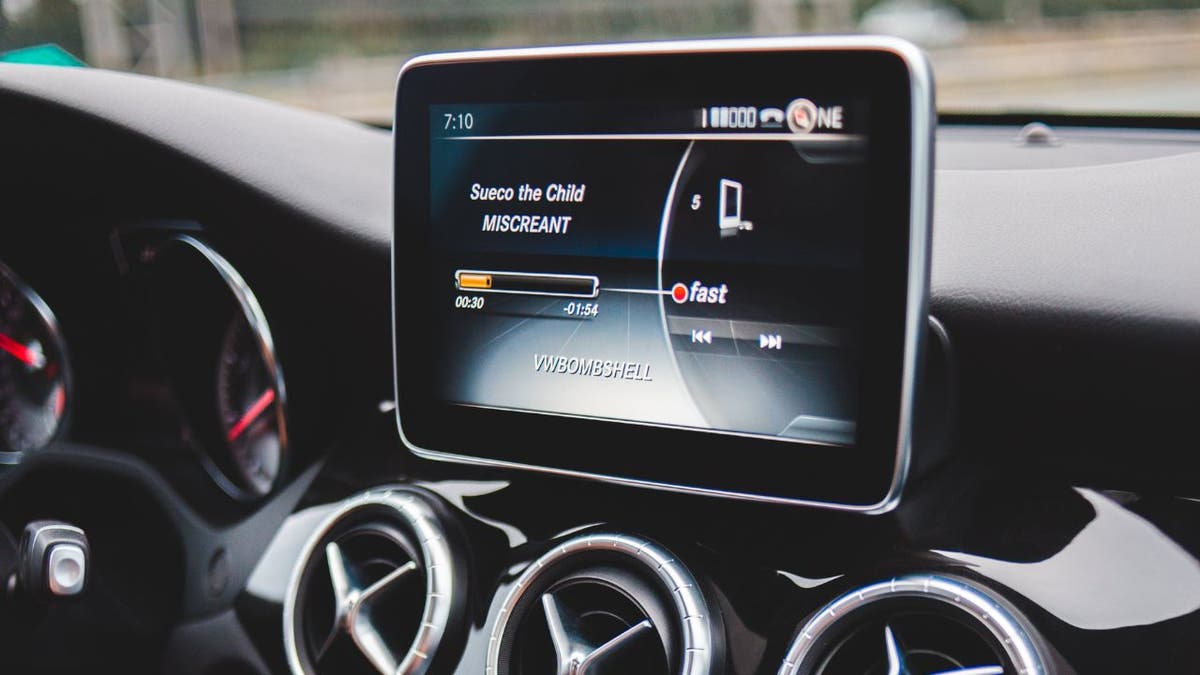
The amount of data your vehicle collects depends on the make and model. (Kurt “CyberGuy” Knutsson )
MORE: 5 BEST RADAR DETECTORS AND APPS
How is your car sharing your data?
Your car can share your data in different ways, depending on the technology and the agreement you have with the manufacturer or service provider. Some of the common methods are:
Cellular: Your car can send data over a cellular network, either using its own SIM card or your smartphone’s connection. This is how some cars offer features like remote start, emergency assistance or navigation services. However, this also means that your car can send data to the manufacturer or other parties without your knowledge or control.
Wi-Fi: Your automobile can connect to a Wi-Fi network, either at your home, workplace or a public hotspot. This can allow you to download software updates, access online services or stream media. However, this also means that your car can upload data to the cloud or other servers without your consent or awareness.
Bluetooth: Your car can pair with your smartphone or other devices via Bluetooth. This can enable you to make hands-free calls, play music or use apps. However, this also means that your car can access data from your devices, such as your contacts, messages or photos, and potentially share them with others.
THE MOST AMERICAN-MADE CARS AND MORE AUTOS STORIES
USB: Your vehicle can read data from a USB drive or device that you plug into it. This can allow you to play media, update software or transfer files. However, this also means that your car can copy data from your USB drive or device and possibly share it with others.
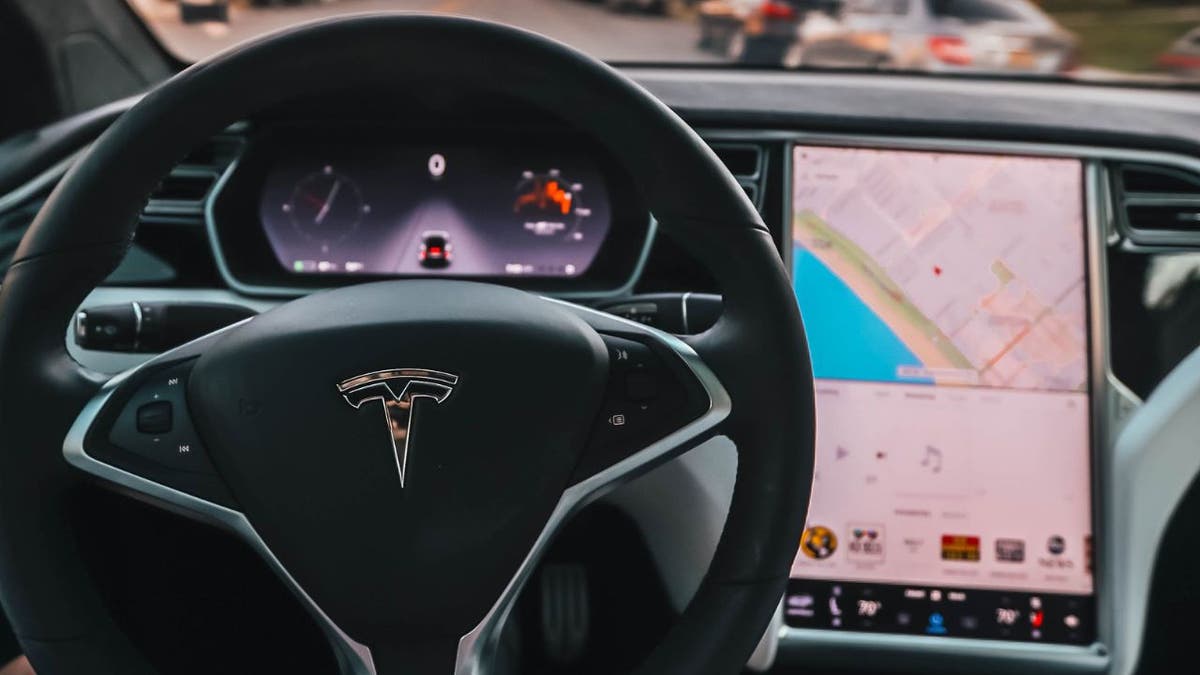
Vehicles can read data from a USB drive or device you plug into them. (Kurt “CyberGuy” Knutsson)
MORE: BEST DASH CAMS FOR YOUR CAR
3 big risks of your car’s data being collected and shared
Your car can reveal a lot of information about you, such as where you live, work, shop and travel.
1. It can also expose your personal and professional communications, your media tastes and your health status. This data can be used by third parties to profile you, target you with ads or discriminate against you.
2. Your car can be hacked by malicious actors, who can access your data, take control of your vehicle or cause damage or harm. This can happen through various means, such as intercepting your wireless signals, infecting your devices or exploiting your software vulnerabilities.
3. Your car can be owned by someone else, who can access your data, monitor your behavior or limit your choices. This can happen if you lease, rent or share your car or if you sell or donate it without properly wiping it.
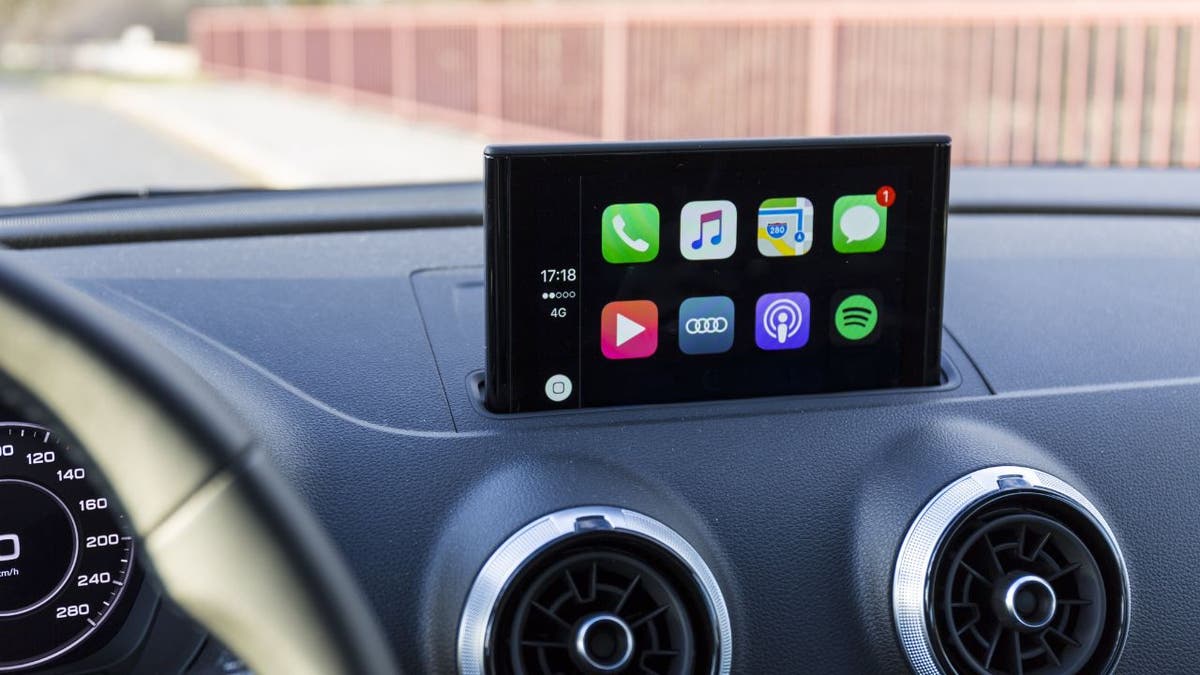
Your vehicle’s data can be hacked. (Kurt “CyberGuy” Knutsson )
MORE: BEST CAR ACCESSORIES 2023
How can you protect your car’s data and your privacy?
There are some important steps you can take to protect your car’s data and your privacy, such as:
- Make sure to erase all your personal data and settings before selling or trading it, such as the infotainment system, the companion app and any third-party service. In each of them, look for an option to delete your information, log out of your accounts and unlink your vehicle.
- When buying a used car, be sure the previous owner removed their connected account and performed a factory reset.
- Only give access to your data to trusted third parties
- Always use strong passwords and set up two-factor authentication for apps and services that connect to your car.
‘DO YOU READ ME, HAL?’ SPACE AGENCIES WEIGH PAIRING ASTRONAUTS IN DEEP SPACE WITH AI COMPANIONS
- When connecting a mobile app to the car, minimize the amount of data collected by this app. You can use iOS or Android settings to limit the data collected by your phone.
- Disable or delete any apps or accounts that you don’t use or trust.
- Opt out from your mobile device’s location sharing.
- Do not use Amazon Alexa in your car if you are concerned about Amazon collecting that voice request information, IP address and geolocation information and using it to target you with advertising.
- Before you buy, lease or use a car, read the privacy policy and terms of service of the manufacturer and service providers. Find out what data they collect, how they use it, who they share it with and how long they keep it. Also, check if you can opt out of any data collection or sharing or request a copy or deletion of your data.
MORE: HOW TO SECURELY GET RID OF YOUR OLD CELLPHONE

Before you buy or lease a car, find out what data it collects. (Kurt “CyberGuy” Knutsson)
Kurt’s key takeaways
Your car is more than just a mode of transportation. It is also a data collector and a data sharer. While this can offer you some benefits, it can also pose some risks. Therefore, you should be aware of what your car knows about you, how it shares that information with others and how you can protect and erase it from prying eyes, especially before you sell, donate or trade it in.
What do you think about your car’s data collection and sharing? Do you feel comfortable or concerned about it? Let us know by writing us at Cyberguy.com/Contact
For more of my tech tips & security alerts, subscribe to my free CyberGuy Report Newsletter by heading to Cyberguy.com/Newsletter
Ask Kurt a question or let us know what stories you’d like us to cover
Answers to the most asked CyberGuy questions:
Copyright 2023 CyberGuy.com. All rights reserved.

Technology
What Big Tech got out of Trump’s Big Beautiful Bill

The Republican-backed legislation is best known for its tax cuts on tips, deduction caps that could primarily benefit wealthy taxpayers, restriction on healthcare coverage for low-income and disabled Americans, cuts to renewable energy incentives, and tens of billions of dollars in funding to immigration enforcement. But it also includes restored tax deductions for research and development and other items that could benefit the tech industry, among other businesses.
In one high-profile fight, the tech industry failed to secure a moratorium on state AI laws, a proposal which had been supported by several trade groups and might have also affected a host of other state tech protections. But after months of lobbying from Congress to Mar-a-Lago, the industry will see slashed taxes and may receive new contracts from border enforcement funding, the Tech Oversight Project finds in a new report shared exclusively with The Verge. Some changes will likely benefit businesses of all sizes and sectors — while others may offer large companies in the tech industry the biggest benefits.
The budget bill essentially reverses a policy from Trump’s first term that limited how companies could write off research and development on their taxes. The 2017 Tax Cuts and Jobs Act (TCJA) forced companies to spread write-offs for domestic R&D costs across five years, rather than deducting them fully in the year they were incurred. Now, Congress is restoring the previous, more generous deduction setup, and small businesses can get retroactive tax write-offs for the last couple years when the changes — which took effect in 2022 — were in place.
In a recent report, Quartz linked the R&D deduction changes to the wave of layoffs across the industry, describing how it made it so companies could effectively only write off one-fifth of their R&D costs in the year they were incurred, rather than the full sum, making salaries for engineers and other high-skilled roles much more costly. The nonpartisan Institute on Taxation and Economic Policy (ITEP) found that in the three years in which the TCJA changes took effect, Alphabet, Amazon, Apple, Meta, and Tesla saw their tax bills rise a collective $75 billion as a result.
“The loss of full R&D expensing disincentivizes firms from significantly increasing their R&D investments”
So unsurprisingly, tech-backed groups like the Information Technology and Innovation Foundation (ITIF) and the Business Software Alliance (BSA) pushed to revert the rule. “The loss of full R&D expensing disincentivizes firms from significantly increasing their R&D investments because the cost of those investments has risen,” ITIF wrote in a blog post earlier this year.
Maintaining a lower corporate tax rate
Conversely, business groups successfully pleaded with lawmakers to keep a different change from the TCJA: a massive reduction in the corporate tax rate from 35 percent to 21 percent. In a letter to lawmakers last year, tech-backed Information Technology Industry Council (ITI) told lawmakers that the reduction had brought the US in line with peer countries, and provided US companies “a more level playing field against their international competitors,” which the nonprofit Tax Foundation found helped boost US investment. Democrats who have opposed the lower tax rates have framed it as a handout to corporate America.
Extending lower international tax rates
The new budget law also blocks a scheduled increase in the effective tax rates on things like the money companies make abroad based on US-based patents or other intangible assets.
These kinds of taxes — the base erosion and anti-abuse tax (BEAT), global intangible low-taxed income tax (GILTI), and the foreign-derived intangible income tax (FDII) — are generally meant to prevent shifty accounting practices like moving assets to a foreign subsidiary. Before the One Big Beautiful Bill Act passed, the effectively lowered rates through these three policies were set to expire at the end of 2025.
The tech industry argued protecting those low rates would keep US companies competitive with other countries, like France and the UK. “Several other nations already offer IP incentives,” ITI told lawmakers in an October letter. “It is essential that the FDII rate remains as low as possible.”
“The tax break disproportionately benefits large corporations with significant intellectual property portfolios”
But groups like the nonpartisan Financial Accountability and Corporate Transparency (FACT) Coalition and ITEP see lower rates for taxes like the FDII as a giveaway to the biggest players in the tech industry, which deal heavily in intangible assets like patents and trademarks.
“The tax break disproportionately benefits large corporations with significant intellectual property portfolios while doing little for smaller firms that lack similar assets,” ITEP wrote in a blog post last year, where it found that Google parent Alphabet reported over $11 billion in tax benefits from 2018 to 2023 as a result of the FDII.
Border protection funding could flow to tech
Alongside a significant budget increase for Customs and Border Protection (CBP) and other immigration-related funding, the law includes about $6 billion for border technologies, including surveillance systems. That money could flow to several large tech firms already engaged in the space.
Those include Peter Thiel-founded data company Palantir, which currently has a $30 million contract with Immigration and Customs Enforcement (ICE) to build “ImmigrationOS” to create “near real-time visibility into instances of self-deportation.” Thiel-backed Anduril also stands to gain if the agency expands infrastructure like the surveillance towers it already supplies to the government. MIT Technology Review reported in 2018 that Amazon Web Services hosted Department of Homeland Security (DHS) databases related to immigration, including a deep pool of biometric data.
Other tax-saving adjustments
Tech companies and other businesses will also benefit from changes in how business interest deductions are calculated, and a permanent extension of rules allowing companies to take a full deduction of certain equipment expenses. House Democrats have previously called this kind of tactic a “Tax Scam,” writing, “Two-thirds of the benefits go to corporations making over $250 million in revenue, and from 2018 through 2021, about two dozen of the largest corporations received roughly $50 billion in tax breaks through this provision.”
Some of the tax changes in the bill will benefit smaller firms and businesses across many different industries. But large tech companies are particularly well positioned to benefit from changes in how foreign profits on intellectual property are taxed and fuller R&D write-offs. After months of cozying up to the Trump administration with little to show for it, it looks like the largest players in the industry have finally notched some wins.
Technology
Spying camera vest deters attackers by recording them in action

NEWYou can now listen to Fox News articles!
When you’re out walking, jogging or running, you should feel empowered, not unsafe. Yet a recent survey found that 92% of women in the U.S. reported feeling concerned for their safety while running, with half of those women fearing physical attack.
Additionally, over one-third experienced physical or verbal harassment, including sexist comments, honking, or being followed. To help address this alarming trend, Urban Eyes introduces a high-visibility safety vest with cameras built in. By capturing real-time footage of your surroundings, this clever wearable tech empowers you to stay focused, feel protected, and reclaim control of your outdoor workouts.
Sign up for my FREE CyberGuy Report
Get my best tech tips, urgent security alerts, and exclusive deals delivered straight to your inbox. Plus, you’ll get instant access to my Ultimate Scam Survival Guide – free when you join my CYBERGUY.COM/NEWSLETTER.
ATM JUGGING SCAM ON THE RISE AS THIEVES TARGET VICTIMS
A man running while wearing a safety vest with cameras (Urban Eyes)
How a safety vest with cameras helps deter attackers
Attackers don’t want to be caught on camera. When you wear a vest with front and rear cameras, you send a clear message: you’re being recorded. This visible deterrent makes would-be harassers think twice before approaching. With bright white, eye-shaped cameras and flashing blue LEDs, Urban Eyes makes sure everyone knows you’re protected.

A woman wearing a safety vest with cameras (Urban Eyes)
How this safety vest with cameras works in action
Slip on the vest, power up the cameras, and hit the ground walking, jogging or running. The wireless remote lets you control both cameras with one button. Want to snap a photo? Just press the remote. All footage is stored locally, so you’re always in control, no cloud connection required.
WHAT IS ARTIFICIAL INTELLIGENCE (AI)?
Top features of this safety vest with cameras
- Dual 2.5K cameras: Capture every stride, front and back, day or night.
- Ultra-lightweight design: Weighs just 0.9 lb, moves freely without feeling weighed down.
- High-visibility panels: Reflective piping and bold colors keep you seen in low light.
- Long battery life: Record up to 90 minutes on a single charge.
- Secure storage: Footage saves directly to SD cards in each camera.
- Easy Plug & play: No app headaches. Use the wireless remote to start, stop, or pause recording instantly.

Pocket-sized remote for the safety vest with cameras (Urban Eyes)
A safety vest designed for comfort and everyday use
Urban Eyes fits most chest sizes (28″-52″) and comes in five color combos. The adjustable waistband and breathable fabric mean you can sprint, jog, or walk comfortably. There’s a large zippered pocket for your phone and smaller pockets for keys or cards, no more juggling essentials.
The benefits of this safety vest with cameras
The Urban Eyes safety vest with cameras gives walkers, runners or joggers, a sense of control and confidence. Knowing the cameras are recording adds an extra layer of protection, making it easier to stay focused instead of feeling vulnerable. The vest’s bright colors and reflective details make sure you’re seen by drivers and cyclists, even in dim conditions. It also keeps things simple. There’s no need to download an app or connect to Wi-Fi. You just press the remote and start recording. Most importantly, it gives you peace of mind. Instead of worrying about who might be behind you, you can concentrate on your pace and your path, knowing that your vest is capturing everything along the way.

A woman holding the pocket-sized remote while wearing a safety vest with cameras (Urban Eyes)
Urban Eyes safety vest: Price and preorder info
Urban Eyes is available for preorder at about $204. Choose your color, order online, and expect delivery in about 35 days.
Kurt’s key takeaways
Personal safety tech has come a long way.
With Urban Eyes, you get more than a vest; you get a visible deterrent and a personal eyewitness. You protect your home, car, and personal data; why not protect yourself when you’re out and about?
Would you feel safer running, walking, or jogging with a camera vest, or do you prefer other safety gadgets? Let us know by writing us at Cyberguy.com/Contact.
Sign up for my FREE CyberGuy Report
Get my best tech tips, urgent security alerts, and exclusive deals delivered straight to your inbox. Plus, you’ll get instant access to my Ultimate Scam Survival Guide – free when you join my CYBERGUY.COM/NEWSLETTER.
Copyright 2025 CyberGuy.com. All rights reserved.
Technology
Stranger Things 5’s first trailer promises an epic showdown

It’s been a long time coming, but we finally have a real look at the end of Stranger Things. Netflix just released the first teaser trailer for the show’s fifth season, which will also be its last when it starts streaming later this year. As was alluded to in the finale of season 4, the new trailer — which, despite being called a teaser, clocks in at nearly three minutes long — is focused on the major showdown with Vecna that will presumably end the string of supernatural bad luck in Hawkins, Indiana for good.
Here’s the official setup for the finale, according to Netflix:
The fall of 1987. Hawkins is scarred by the opening of the Rifts, and our heroes are united by a single goal: find and kill Vecna. But he has vanished — his whereabouts and plans unknown. Complicating their mission, the government has placed the town under military quarantine and intensified its hunt for Eleven, forcing her back into hiding. As the anniversary of Will’s disappearance approaches, so does a heavy, familiar dread. The final battle is looming — and with it, a darkness more powerful and more deadly than anything they’ve faced before. To end this nightmare, they’ll need everyone — the full party — standing together, one last time.
-

 News1 week ago
News1 week agoVideo: Trump Compliments President of Liberia on His ‘Beautiful English’
-

 News7 days ago
News7 days agoVideo: Clashes After Immigration Raid at California Cannabis Farm
-

 Politics1 week ago
Politics1 week agoJournalist who refused to duck during Trump assassination attempt reflects on Butler rally in new book
-
Business1 week ago
Commentary: Does America need billionaires? Billionaires say 'Yes!'
-

 News7 days ago
News7 days agoTrump heads to Texas as recovery efforts from deadly flood continue
-

 World7 days ago
World7 days agoNew amnesty law for human rights abuses in Peru prompts fury, action
-

 Politics1 week ago
Politics1 week agoObama officials used dossier to probe, brief Trump despite knowing it was unverified 'internet rumor'
-

 News1 week ago
News1 week agoDOGE keeps gaining access to sensitive data. Now, it can cut off billions to farmers




